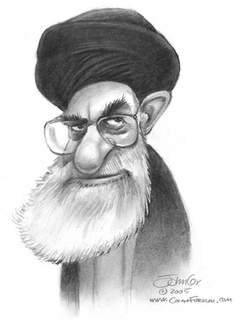Considering the historical belligerence between Iran and the United States, the Islamic Republic was surprisingly helpful in the U.S. invasion of Iraq. With few understandable exceptions, it stayed out of Iraq's internal affairs and refrained from adding—as it could easily have—complexity to an already difficult situation for American soldiers and diplomats in the country. (Though according to recent comments by Major General William B Caldwell and U.S. Ambassador Zalmay Khalilzad, this may be changing. As yet unconfirmed information indicates that Shiite groups may be receiving training in Iran and that the latter may be providing improvised explosive devices to groups in Iraq, all of which is believed by U.S. officials to be in response to Israel's attack upon Lebanon.) For nearly three years since the invasion, Tehran wisely stayed on the sidelines not because it faced the threat of a powerful military occupying its neighbor, but because its interests dovetailed with those of the U.S. A stable, somewhat democratic regime in Iraq was much more palatable to Tehran, mullahs and bellicose presidents alike, than whatever else could have replaced the Saddam Hussein regime.
 But now, with U.S. generals and President Bush beginning to admit that Iraq is going to hell and is teetering on the brink of a multi-faction civil war, Tehran is reconsidering its position. Given its proximity to Iraq, Iran certainly cannot afford to have a failed warring state as a neighbor. Hence, in the past months, its otherwise inexplicable resistance to the world community on the issue of nuclear power and enriched uranium. It is all set to announce, today, that it will not yield to the pressure of the international community to abandon its nuclear ambitions. The fact of the matter is, Tehran sees nuclear power, civilian or otherwise, as an indication of power and status. It needs this, along with a solid conventional military (it conducted short-range missile tests over the weekend) not only to deter the United States by threatening shipping lanes and oil in the region (or to destroy the state of Israel, as some believe it intends to do), but primarily to protect itself from the ramifications of a failed state next door. With hints within the U.S. administration that a substantial force reduction, or even a pull-out in the face of civil war, is not impossible, Tehran can only but accelerate whatever program it has to secure itself.
But now, with U.S. generals and President Bush beginning to admit that Iraq is going to hell and is teetering on the brink of a multi-faction civil war, Tehran is reconsidering its position. Given its proximity to Iraq, Iran certainly cannot afford to have a failed warring state as a neighbor. Hence, in the past months, its otherwise inexplicable resistance to the world community on the issue of nuclear power and enriched uranium. It is all set to announce, today, that it will not yield to the pressure of the international community to abandon its nuclear ambitions. The fact of the matter is, Tehran sees nuclear power, civilian or otherwise, as an indication of power and status. It needs this, along with a solid conventional military (it conducted short-range missile tests over the weekend) not only to deter the United States by threatening shipping lanes and oil in the region (or to destroy the state of Israel, as some believe it intends to do), but primarily to protect itself from the ramifications of a failed state next door. With hints within the U.S. administration that a substantial force reduction, or even a pull-out in the face of civil war, is not impossible, Tehran can only but accelerate whatever program it has to secure itself. This isn't as far-fetched or irrational as it seems. Let us imagine for an instant that Canada, or Mexico, is on the brink of civil war. To this we add borders that are far more porous (despite what some Washington officials and media figures claim) than the current existing borders, through which people and weapons can be smuggled. Add also people of similar religious beliefs and put them in an unstable region. What would Washington do—reduce its forces? Of course not. Rather, it would arm itself so as to better protect itself from the unfolding chaos next door.
After the Iran-Iraq War, Iran never really had a chance to refurbish or modernize its U.S.-made military, most of which was purchased when the Shah, an ally of Washington, was in power. Facing sets of sanctions and isolation, Iran turned to former Soviet states to obtain armament, but it didn't have the financial means to completely modernize its army. Facing a crisis next door and unable to consolidate a conventional military force that can meet this challenge with assurance of success, it will turn to the power of nuclear deterrence. Despite its far better understanding of its neighbor than the U.S. (and the rest of the world) will ever be able to attain, even Iran is unable to see far enough into the future to determine what kind of regime would emerge from a civil war in Iraq. Given its long history of persecution (at times real; at times imagined) at the hand of foreigners and the still-fresh wounds of Saddam's invasion in the 1980s, during which course chemical weapons were used liberally, it is no wonder that Tehran would look at the possible futures with a tinge of apprehension. What if whatever leader emerged from an Iraqi civil war were as terrible a tyrant as Saddam? What if he were twice the dictator, inspired by religious zealotry or backed by other Sunni players bent on removing the Shiite "threat" once and for all?
In its refusal to abide by the demands of the international community, Iran may be mostly protecting its interests. Perhaps diplomats ought to start taking Iran's security into consideration. It doesn't exactly live in the most stable neighborhood.

No comments:
Post a Comment
Note: Only a member of this blog may post a comment.